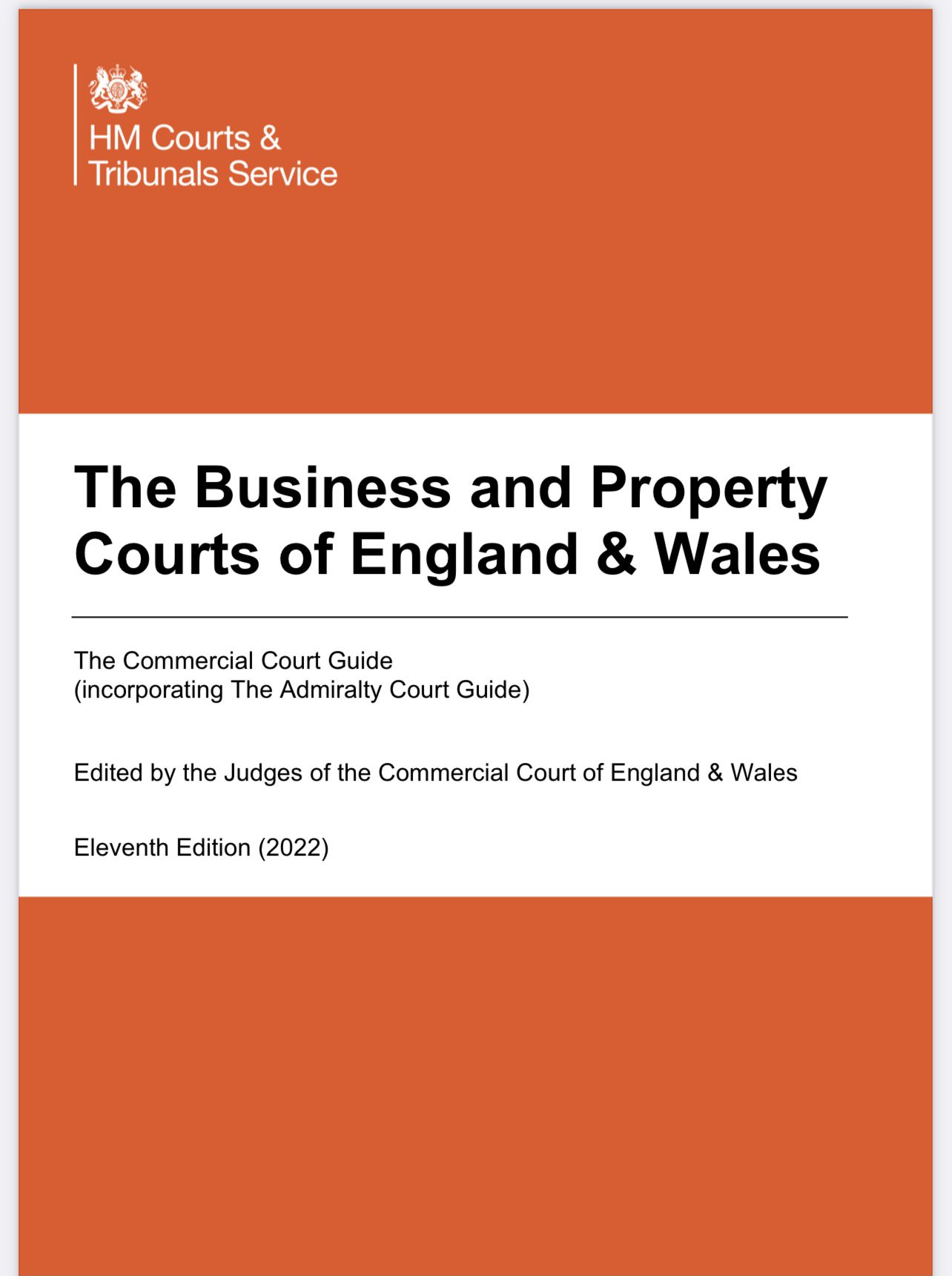
The new Commercial Court Guide renames ADR as NDR, or Negotiated Dispute Resolution.
It falls short of proposing any mandatory mediation but allows for parties to apply for directions at any stage. The Guide also allows for early neutral evaluation to take place externally or by the judge. The rules are as follows:
. Negotiated Dispute Resolution (“NDR”) G.1 Generally
G1.1 Parties who consider that NDR (referred to in previous editions of the Guide as ‘ADR’) might be an appropriate means of resolving the dispute or particular issues in the dispute may apply for directions at any stage.
G1.2 Legal representatives in all cases should consider with their clients and the other parties concerned the possibility of attempting to resolve the dispute or particular issues by NDR and should ensure that their clients are fully informed as to the most cost effective means of resolving their dispute.
G1.3 The Judges will in appropriate cases invite the parties to consider whether their dispute, or particular issues in it, could be resolved through NDR procedures (such as, but not confined to, mediation and conciliation). Where that is done, if appropriate, a hearing may be adjourned, or the proceedings may be stayed, for a specified period of time to allow for NDR, extending time as may be required for the taking of other steps in the case, including under existing orders. In an appropriate case, an NDR Order as set out in Appendix 3 may be made.
G1.4 Where the Court seeks to assist the parties in agreeing an individual, panel or body to act as mediator, conciliator or other neutral NDR service provider, for example under paragraph 3 of an NDR Order in Appendix 3 form, that will not and must not be taken as involving recommendation.
G1.5 Any order providing for NDR should include an order as to the costs that the parties may incur in using or attempting to use NDR, if the case is not settled. The order as to such costs is normally either (a) an order for costs in the case or (b) an order that each side shall bear its own costs.
G1.6 In some cases it may be appropriate for an NDR order to be made following judgment if an application is made for permission to appeal, in which case the application for permission to appeal may be adjourned, to be restored if the matter is not settled through NDR procedures by a specified date.
G1.7 If the Court considers that bilateral negotiations between the parties’ respective legal representatives is likely to be a more cost-effective and productive route to settlement than other forms of NDR, the Court may set a date by which there is to be a meeting between the solicitors and representatives of their respective clients with authority to settle the case.
G.2 Early neutral evaluation
G2.1 Early neutral evaluation (“ENE”) is a without-prejudice, non-binding, evaluation of the merits of a dispute or of particular issues in dispute, given after time-limited consideration of core materials and having read or listened to concise argument. It is designed to take place in private at an early stage in a dispute.
G2.2 At a Case Management Conference, the Court may explore whether ENE may assist in resolving the dispute.
G. Negotiated Dispute Resolution (“NDR”)
60
G2.3 ENE may be provided by appropriate third parties or, in an appropriate case if agreed by all parties, by one of the Judges of the Court. The approval of the Judge in Charge must be obtained before any ENE is undertaken by a Judge.
G2.4 Where the evaluation is undertaken by a Judge, only brief, informal reasons will be provided, usually expressed orally.
G2.5 Where ENE by a Judge of the Court is sought by the parties and approved by the
Judge in Charge:
(a) The Judge in Charge will nominate the Judge who will conduct the ENE.
(b) The nominated Judge will give directions for the preparation and conduct of the ENE.
(c) The Judge who conducts the ENE will take no further part in the case, at any stage, unless the parties agree otherwise.
